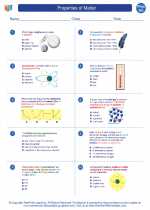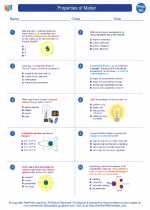Sulfur
Sulfur is a chemical element with the symbol S and atomic number 16. It is a non-metal that is commonly found in nature and has a variety of important uses in industry, agriculture, and everyday life.
Properties of Sulfur
Sulfur is a bright yellow, solid substance at room temperature. It is odorless and has a distinct taste. Sulfur is insoluble in water but can be dissolved in carbon disulfide. It can form compounds with many other elements, and these compounds are often characterized by a strong, unpleasant odor.
Uses of Sulfur
- Industrial Uses: Sulfur is used in the production of sulfuric acid, which is a key component in many industrial processes, including the manufacturing of fertilizers, batteries, and chemicals.
- Agricultural Uses: Sulfur is an essential nutrient for plant growth and is often used in fertilizers to improve soil fertility and crop yield.
- Health and Medicine: Sulfur is used in the production of certain pharmaceuticals and is also a component of some skin care products.
- Other Uses: Sulfur is used in the vulcanization of rubber, the production of dyes and pigments, and in the manufacturing of gunpowder and fireworks.
Study Guide
If you are studying sulfur, here are some key concepts and questions to consider:
- What are the physical and chemical properties of sulfur?
- How is sulfur mined and extracted from the Earth?
- What are the industrial uses of sulfur, and how is it processed for these applications?
- What is the role of sulfur in agriculture, and how does it impact plant growth and soil fertility?
- How is sulfur used in health and medicine, and what are its potential benefits and risks?
- What are some environmental considerations related to sulfur production and use?
By exploring these questions and concepts, you can gain a deeper understanding of the properties, uses, and significance of sulfur in the world around us.
[Sulfur] Related Worksheets and Study Guides:
.◂Physics Worksheets and Study Guides High School. Properties of Matter
Worksheet/Answer key Properties of Matter
Properties of Matter  Worksheet/Answer key
Worksheet/Answer key Properties of Matter
Properties of Matter  Worksheet/Answer key
Worksheet/Answer key Properties of Matter
Properties of Matter  Worksheet/Answer key
Worksheet/Answer key Properties of Matter
Properties of Matter 

 Worksheet/Answer key
Worksheet/Answer key
 Worksheet/Answer key
Worksheet/Answer key
 Worksheet/Answer key
Worksheet/Answer key

The resources above cover the following skills:
Concepts of Physical Science: A student should understand and be able to apply the concepts, models, theories, universal principles, and facts that explain the physical world. A student who meets the content standard should:
Develop an understanding of motions, forces, their characteristics and relationships, and natural forces and their effects.